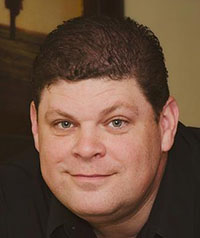Therefore, let us leave behind the basic teaching about Christ and advance to maturity, without laying the foundation all over again: repentance from dead works and faith in God, instruction about baptisms* and laying on of hands, resurrection of the dead and eternal judgment. And we shall do this, if only God permits.
Hebrews 6:1-3
The US Bishop’s pastoral letter on stewardship was published in 1992 as a challenge to embrace a way of life with the “power to change how we understand and live out our lives.” It calls us to a mature discipleship that requires a decision to follow Jesus Christ no matter the cost. However, this notion brings to mind the words of Maya Angelou, “Most people don’t grow up. Most people age. They find parking spaces, honor their credit cards, get married, have children, and call that maturity. What that is, is aging!”
Maturity is also a notion that we sometimes have failed to understand in the Church. The years of talking about teenagers becoming adults in the Church at Confirmation certainly didn’t help. Being older certainly doesn’t mean one is necessarily mature. Age and experience come our way whether we want it to or not. What we learn from the passage of time is what brings about maturity.
Mature disciples come in all ages really. To test maturity one simply needs to ask the question given to us in the challenge of the Bishop’s pastoral letter: “Will I follow Jesus Christ no matter the cost?” One cannot grow in a sense of stewardship if he or she is always “counting the cost.” Think of children’s reactions to requests of their time and effort: “That’s not fair!” “I don’t feel like it!” “How come I have to do it?”
If we seriously follow Jesus and become good observers of our lives, we realize that every day there are costs: some days less than others, and some days much more. A mature Everyday Steward will hit those challenges head on with trust in the Lord. It does become easier though as maturity grows because, as the US Bishops point out, to lead this way of life transforms a person. The great promise in this is that transformed people begin to transform the world around them. Who doesn’t want that? (“Immature people, of course,” said the still small voice.)
This article does not coincide with this Sunday’s readings. For that reflection, click here.


Leave a comment